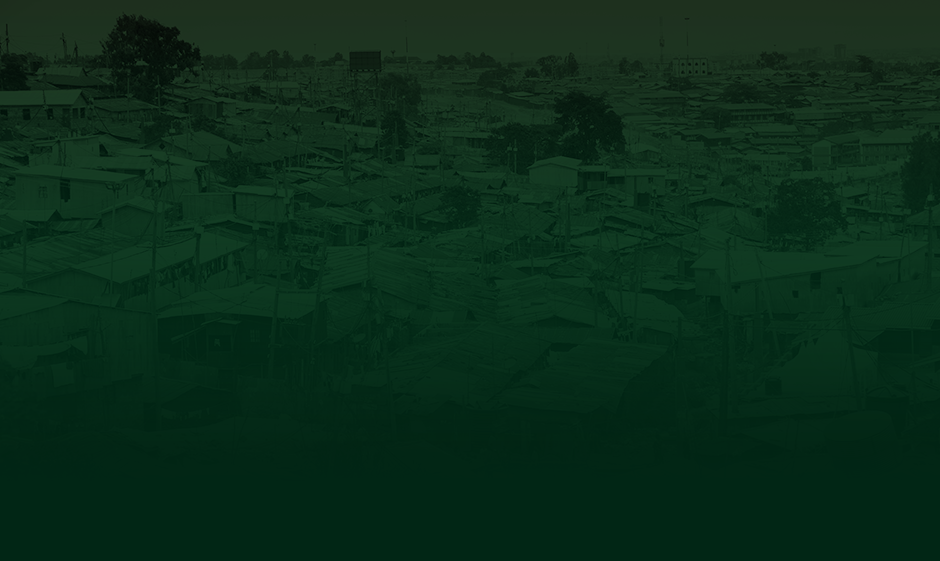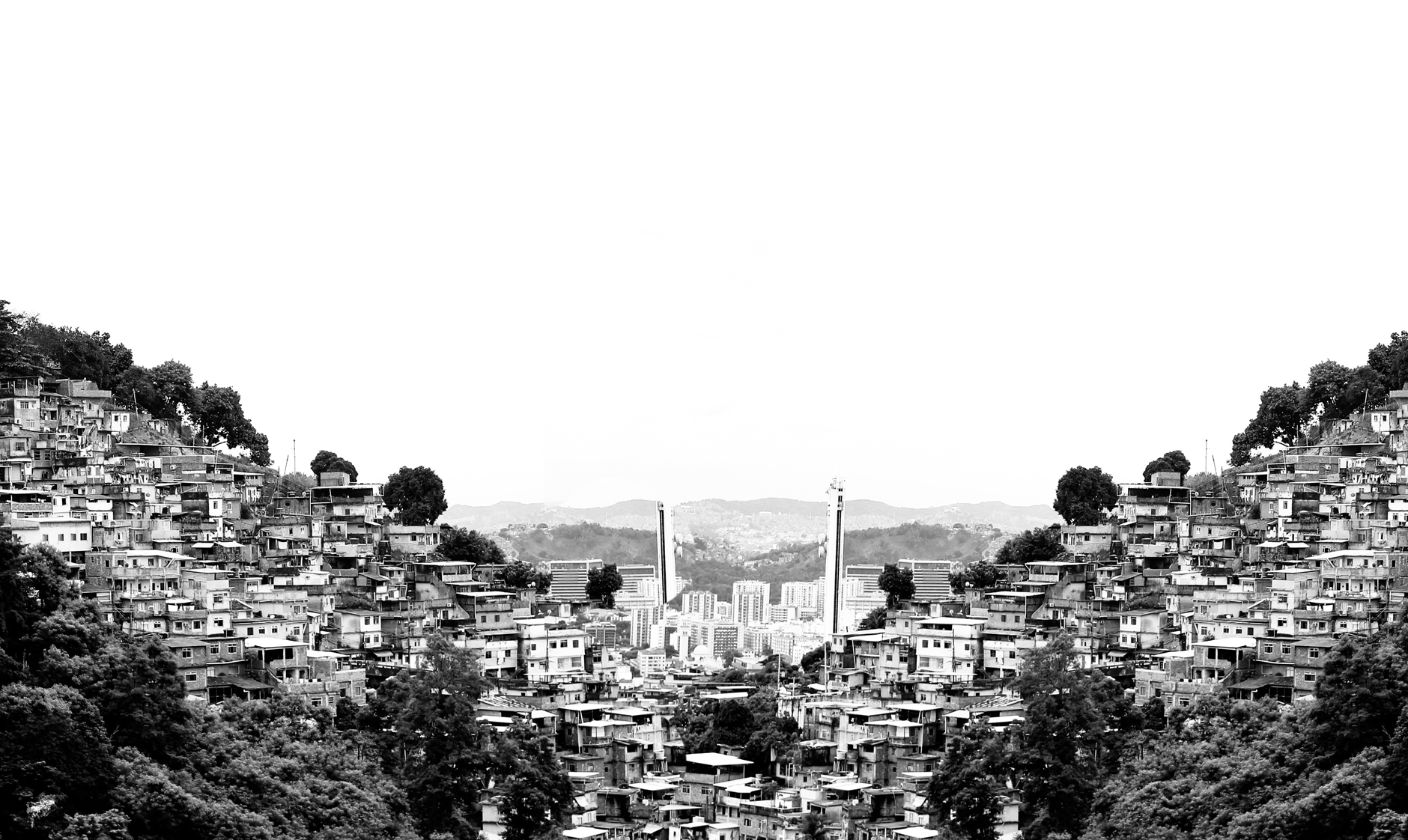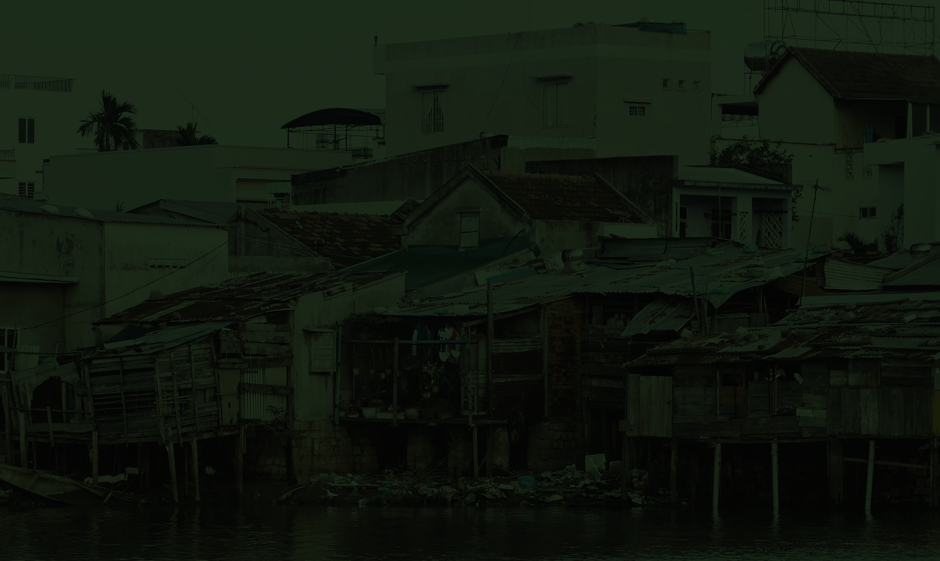
ACTION-BASED
In this program, simply absorbing information in the classroom isn't enough. What you study in the morning you'll find yourself using that afternoon.
MENTORSHIP-DRIVEN
Be mentored by experienced professors and learn the ropes from movement leaders at NGOs and churches.
SERVE THE MARGINALIZED
Your research project won't be theoretical; it will actually help people in dire situations like refugee camps, sex trafficking, and impoverished communities.
LIVE & WORK IN URBAN CONTEXTS
Live and work shoulder-to-shoulder with local leaders in an informal urban settlement or in a major U.S. city.

QUICK LINKS
Globally, the urban poor face challenges with land rights, education, illness, and exploitation.
In U.S. cities there is a similar experience of oppression in marginalized communities.
These issues are not solved easily. Leaders are needed to rise up and meet these challenges head-on.

Become a Transformational Leader
MATUL is a field-based program that prepares students to implement spiritual, socioeconomic, political, and environmental change around the world.
LEARN FROM LOCAL LEADERS
Study and work alongside local leaders of social and church movements while partnering with community organizations.
CREATE CRUCIAL ACADEMIA
Your research helps solve development issues among the urban poor.
PARTICIPATE IN POWERFUL MOVEMENTS
Organize projects to catalyze local leadership such as small group multipliction, self-help savings groups, teacher training, etc.
Program Overview
The MATUL prepares leaders among the poor to engage with the complex issues and realities of global megacities. Learn how to become a transformational leader, create critical academia, and develop powerful movements.
global cohort of national leaders
National leaders around the world have enrolled in the MATUL and are hard at work bringing transformation to their communities and nations. No matter where you find yourself in the world, our global program is set up to give you an immersive education experience that will equip you to not only better understand the complex needs of your community but to bring transformation with effective action. Faith and works truly come together in this program.
U.S. Cohort of urban leaders
In US cities, there is a similar experience of oppression in marginalized communities. Emergent leaders are needed to spearhead movements enabling breakthroughs. The complexities of engagement, the healing of cultural trauma, and the envisioning of the highest good are the focus of our U.S. MATUL cohort of activist thinkers and professors.
Read More About The History of The MATUL
An immersion program developed through over 30 years of consultation with urban poor leaders around the globe, the Master's of Transformational Urban Leadership may be the only academic program in the world focused on transformative movements among the 1.4 billion living in informal settlements.
Following storytelling-consultations of urban poor leaders in Mumbai in 1993 and Hong Kong in 1996, the Encarnação Alliance of urban poor movement leaders in Sao Paulo in 2002 decided to develop training processes for urban poor workers.
The 2004 Encarnação Alliance Consultation in Bangkok sensed that the Lord was in process of mobilizing 50,000 indigenous and cross-cultural workers to the slums of Asia, Africa, and Latin America to meet the need of deepening poverty, growing migrant populations, and the responsiveness of the urban poor. God has done that.
The delegates at the consultation identified training needed in urban poor ministry: grassroots training as well as a graduate degree in urban leadership. Thus, the MATUL was developed. This led to the formation of the MATUL Commission, a professional association of professors from universities and seminaries delivering the MATUL. In 2006, we launched at schools in Chennai and Manila, followed by a US university, then Nagpur, Nairobi, and Kampala. Students can study at these locations or complete their degree online from anywhere.
36-42 Credits
Develop as a Scholar-Activist
2-5 Years
Length of Program
DEAC
Accreditation
Students learn a systems-based approach to development that takes all the factors of an issue into account to solve the root causes of an issue. This results in lasting solutions that truly help people and communities develop.
Full-time, the MATUL is six semesters that takes on average two years. Part-time students taking one course per semester takes on average three-four years.
WCIU is accredited by the Distance Education Accrediting Commission. DEAC is the preeminent accrediting organization for US-based distance education.
What Will You Gain?
Urban Leadership Expertise
Learn skills that range from communicating the gospel and small group formation to the complexities of community and international development.
Spiritual and Character Formation
Receive mentorship from NGO management and community leaders who supervise character-building fieldwork.
A Broader Theological Lens
Join the ranks of top theological thinkers on poverty through theological reflection, studying global literature, and working with the urban poor.
Cross-Cultural Capacities
Learn crucial cross-cultural skills such as communication, cultural sensitivity, adaptability, and anthropology.
Our faculty is multi-ethnic and globally based with years of on-the-field experience.
MATUL features courses taught by experts from around the world, facilitating a truly global classroom experience. Instructors model academic excellence, as well as a commitment to action. MATUL faculty share decades of ministry and work among the urban poor.
Cohort community
As they study in different cities and cultures around the globe, MATUL students meet virtually each week for classes via video chat. Cohort members discuss course material and share reflections on local expressions of global concerns.
Local Mentors
MATUL students partner with local church and community leaders during the course of the program. When Brandon and Paul's community in Metro Manila flooded during a typhoon, they looked to Pastor Rosales to model the church's role in community disaster response. Brandon and Paul worked alongside Pastor Rosales, who helped organize rescue teams, deliver food and medicine to stranded community members, and used the church as a shelter during the typhoon.

Course Information
The MATUL is composed of core courses, electives, and various service-learning opportunities.
Core Courses
TUL 500: Visions for the Ideal City
This course relates the biblical motif of the Kingdom of God to issues of leadership development in resource-poor urban communities. More Info.
TUL 503: Language & Culture Learning 1
This course guide students in working with local language schools or language helpers in the acquisition of knowledge and skills for independent language and culture learning within urban-poor communities [May be tested out for those with high intermediate language skills, or those working within their own cultural context. This course is a credited part of 4 days per week of language learning].
TUL 504: LANGUAGE & CULTURE LEARNING 2
A continuation of TUL 503, this course guide students in working with local language schools or language helpers in the acquisition of knowledge and skills for independent language and culture learning within urban-poor communities [may be tested out for those with high intermediate language skills, or those working within their own cultural context. This course is a credited part of 4 days per week of language learning].
Prerequisite: TUL 503.
TUL 520: Urban Spirituality
This course expands theologies of the Holy Spirit and his work among the urban poor. It emphasizes care and nurturing of workers, practical application of the spiritual disciplines, and communicating between diverse understandings of the work of the Spirit.
TUL 530: Building Faith Communities (SL)
Includes Service Learning
This course applies a storytelling-approach to the process of entering poor communities and developing holistic poor peoples’ churches in ways faithful to the values and goals of the Kingdom of God. More Info.
TUL 540: Social Science Theories of the City
This course organizes an interdisciplinary dialogue between urban theology and urban analysis, drawing upon studies in urban economics, urban planning, community development, urban anthropology, sociology, and the history of cities. It generates Christian perspectives on social science tools for transformative urban development.
TUL 560: Theory & Practice of Community Economics (SL)
Includes Service Learning
This course relates biblical and theological perspectives on human development to the theory and practice of community wealth building. Special emphasis is given to considering how working women in the slums might use micro-enterprises and individual development accounts to create a better environment for asset building and ownership. More Info.
TUL 620: Leadership in Urban Movements
This course explores the dynamics of leadership within holistic, urban poor movements. Special emphasis is given to urban religious movements, social movements, civil sector organizational leadership models and citywide leadership networks for proclamation, revival and transformation. It includes being part of a conference leadership team.
TUL 670: Qualitative Urban Research Methods
Students in this course design qualitative/participatory research projects related to significant issues on behalf of an urban movement or community organization.
TUL 675: Integrative Research Project
In this course, students conduct the qualitative/participatory research projects they designed in TUL670. This culminates in the writing and oral presentation of a report that involves local residents in transformation.
Prerequisite: TUL 670.
Elective Courses
TUL 535 Community Transformation (SL)
Includes Service Learning
Students explore the challenges, models of, and prospects for, transformational change within slum communities while developing a Christian framework for holistic development, organization, and advocacy among the urban poor and gaining facility in community asset mapping.
TUL 550: Solidarity with the Marginalized (SL)
Includes Service Learning
This course guides students in understanding the conditions of marginalized populations and in formulating a theology and strategy for team-based responses that aim to free individuals and change structural causes.
TUL 555: Educational Development in Poor Communities (SL)
Includes Service Learning
This course focuses on developing and improving preschool, elementary school, and vocational school education in global slums as integral to the work of urban poor churches. Topics include philosophy of education among the poor, and the course includes a practical project evaluating school effectiveness, models of community-based (slum) schooling, curriculum development, long-term management, and financial viability.
TUL 640: Entrepreneurial & Organizational Leadership (SL)
Includes Service Learning
This course introduces the concepts and skills of entrepreneurial and organizational leadership required to initiate new movement structures among the urban poor.
Prerequisite: TUL 560.
TUL 645: Resourcing organizations for social impact
This course introduces a redemptive entrepreneurial framework essential to developing sustainable resources in global urban settings. Practitioners and funders will share transformative models and inspire students to create their own fund development strategies.
TUL 650: Urban Community Health Programs (SL)
Includes Service Learning
This course is an exploration of the public health challenges facing the Church and local non-governmental organizations (NGO’s) within urban poor communities, along with innovative, community-based responses. Topics include environmental health, maternal and child health, and chronic health conditions prevalent in marginal urban communities.
TUL 655: Advocacy & the Urban Environment (SL)
Includes Service Learning
Students examine the relations between urban poor communities, the land, and broader environmental problems including natural disasters. Fieldwork focuses on advocacy for adequate housing and infrastructure services.
*SL indicates that service learning is included as part of the course. The course involves 1 credit of action in working with a local community organization or church and 2 credits of reflection.
What Makes MATUL Different From Other Programs?
Action-Reflection Courses
Residence with the urban poor enables students to combine living, action, and formal learning in an integrated approach to leadership development.
Online Delivery &
Hands On Experience
Courses combine compassionate action, social analysis, character development, and theological reflection.
Field Support
The challenge of living and learning in distressed environments is balanced with a high level of practical support - field mentors, local family support, and close-knit cohorts.
Building Faith Communities
Students are challenged with creating small communities and groups where they are serving.
Church Movements
Students work alongside NGOs and church leadership developing campaigns, programs, and movements.
Theology-Driven
Our courses all have a theological foundation. Each course is 1/3 theology, 1/3 social analysis, and 1/3 action.

Integrative Research Project
The degree culminates in a final project, completed in partnership with a local NGO or church. This project must be academically sound and reach beyond the theoretical. All projects are presented to the partner organization for evaluation and implementation. Students must become skilled “oral culture” communicators and be able to present written/oral communication to academia.
Here are a few graduates’ research projects that have been implemented or utilized by the partnering organization:
● "Pakikipagkapwa-Tao: Stories of Leaders Working Among the Poor"
● “A Community Organizer Training Course: Tools and Resources for Favela Leaders in Rio de Janeiro”
How To Get Your M.A. in
Transformational Urban Leadership
1. Study Online
Take courses online and interact with your cohort from anywhere in the world.
2. Gain Practical Experience
Begin working in a highly impoverished area. Some students work close to home while others move into other countries or communities.
3. Do A Final Research Project
Complete a capstone project in partnership with a local NGO or church.
4. Become A Movement Leader
Start shaping movements that help the marginalized communities around you.

FAQs
Is A Thesis Required?
Currently, there is no Master's Thesis required for the MATUL. However, there is a Community-based research project that students conduct in their final semester which is a culmination of the learning from the degree. This is as high a quality of research as a thesis but based on an action-reflection project approach rather than a theoretical approach only.
How do I find housing, language schools, and internship opportunities overseas?
In each city, students find a City Mentor (we help set that up, but the students are the ones to decide). The City Mentor helps to connect students to local churches, housing, language tutors and schools, and organizations. They guide students as they acclimate, and serve as a point person for spiritual/cross-cultural support.
How much does MATUL at WCIU cost?
It is one of the least expensive U.S. missions training degrees out there. Additionally, WCIU is offering up some good scholarships for those who demonstrate need, academic ability, and breadth of vision. If you are a leader from an overseas nation, then scholarships may bring the cost down to an equivalent university’s tuition within your own country.
You normally will spend $50-$70 on one or two books per course. Most other books are in the course or online. This varies from country to country.
Above the tuition costs, if you are going overseas, you also need to cover travel, insurance, language learning, book costs, and visa breaks. For more information on tuition and scholarships, visit our tuition page.
I want to enroll in MATUL, but I am not currently connected with a church, mission, or development agency. Can I still apply?
All students relocating overseas must be connected with a church and a mission or development agency. If you’re not, we’re happy to help! Get in touch and we’ll help you find and connect with an organization committed to the urban poor. If you are deeply involved with a church and denomination, then there are also likely mission resources to aid you in your studies. This makes it more likely that you will be on the field long term.
Do MATUL students go by themselves or are they part of a team?
Two by two is a good biblical principle. We do not encourage people to go alone. However, we also do not encourage groups of more than six in a city, as students then integrate into the community more slowly, as they naturally hang out with the foreigners. This hinders language and culture learning.
Each week, you connect across the world with your cohort online in each course as well, so it is a very supportive community. You will succeed if the least in your cohort succeeds.
I’M ALREADY LIVING AND WORKING IN A SLUM. DO I NEED TO RELOCATE?
The program is designed for people like you! No need to relocate - you can stay in your place of ministry as you study! WCIU is committed to providing high-quality distance education that allows students to continue in their ministry. MATUL is an online program. In some circumstances, students may test out of language and culture learning courses if they’re already proficient in the local language. However, you will need to carve out time each week for study, so you may have to limit your ministry.
I’m in full-time ministry – can I do MATUL part-time?
Yes, there are two options: 2 years full-time and 3-5 years part-time. If you do one course per semester, and there are 39 units or 13 courses, that would be 4 years and 1 semester. That is a long time, so you might consider taking a semester just focused on studying full-time to shorten it. Whatever approach you take, you must seriously count the cost of time. It is 8-10 hours per week for each course (plus language learning for those going overseas). Some potential approaches could be to plan one day a week on top of your job, or work each evening, or ask your employer to sponsor you to take one day off each week to study.
Do you have questions about our tuition costs or the admissions process?
Find out more on our admissions & tuition page.
Become a transformational
movement leader.
What's your next step?
I'm ready to apply today.
I have a question and want to talk to someone at WCIU.












